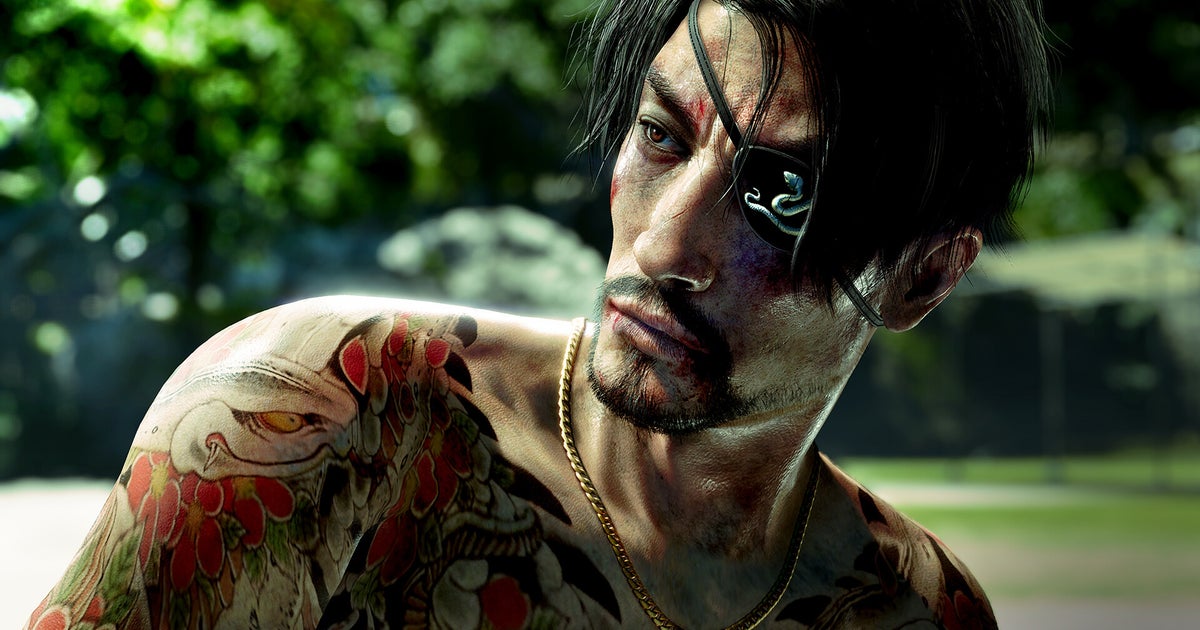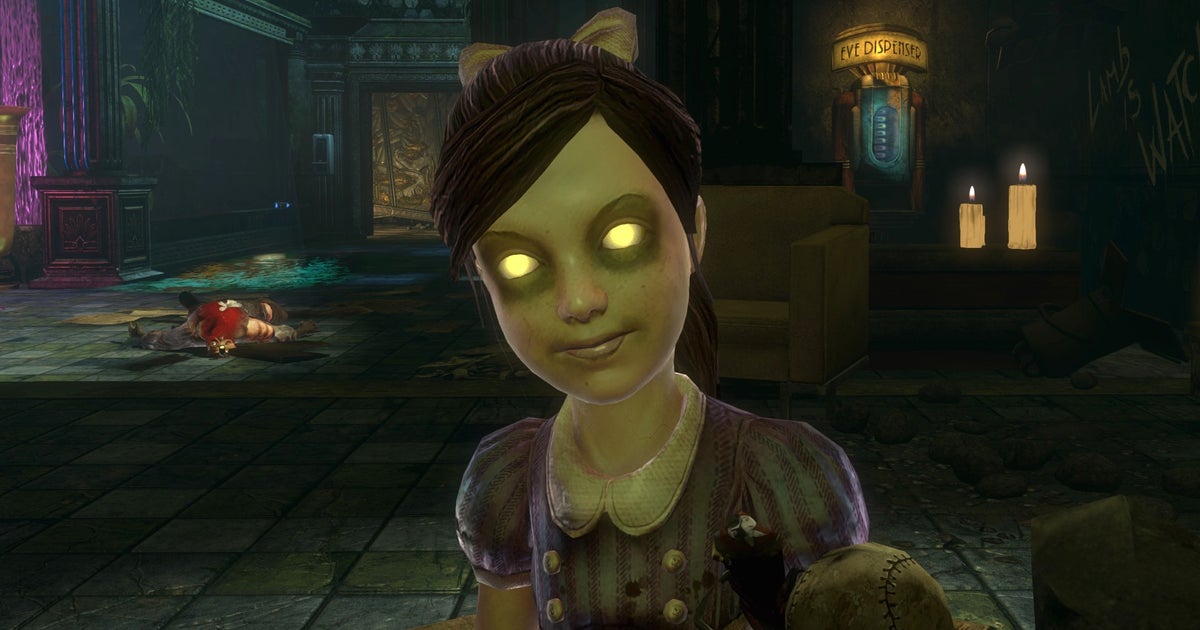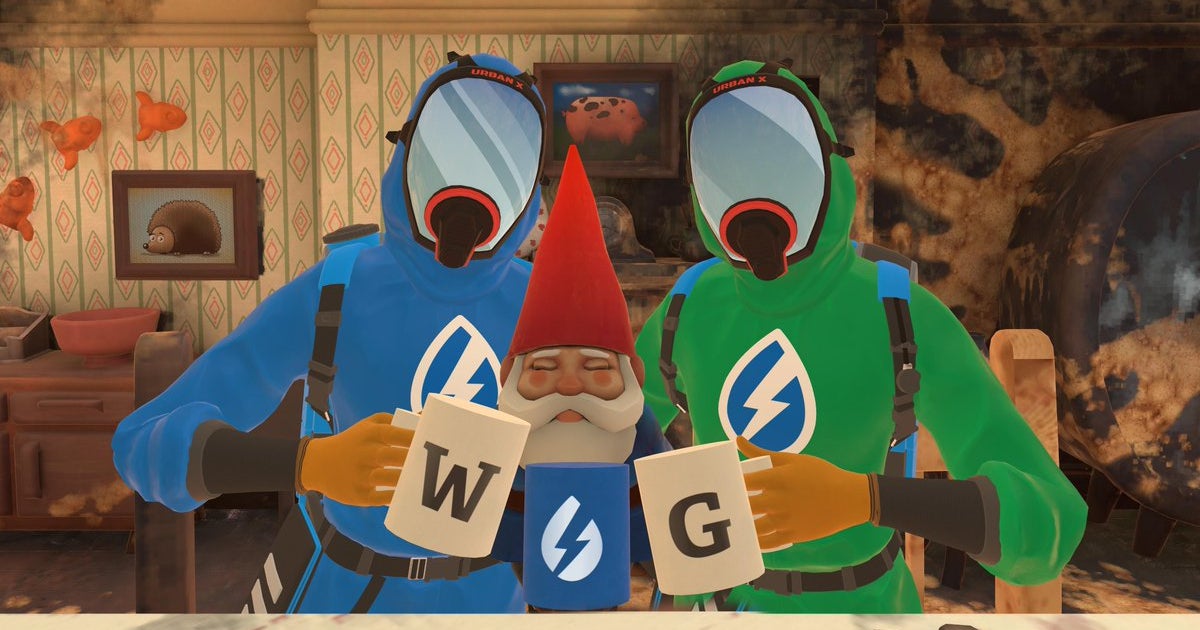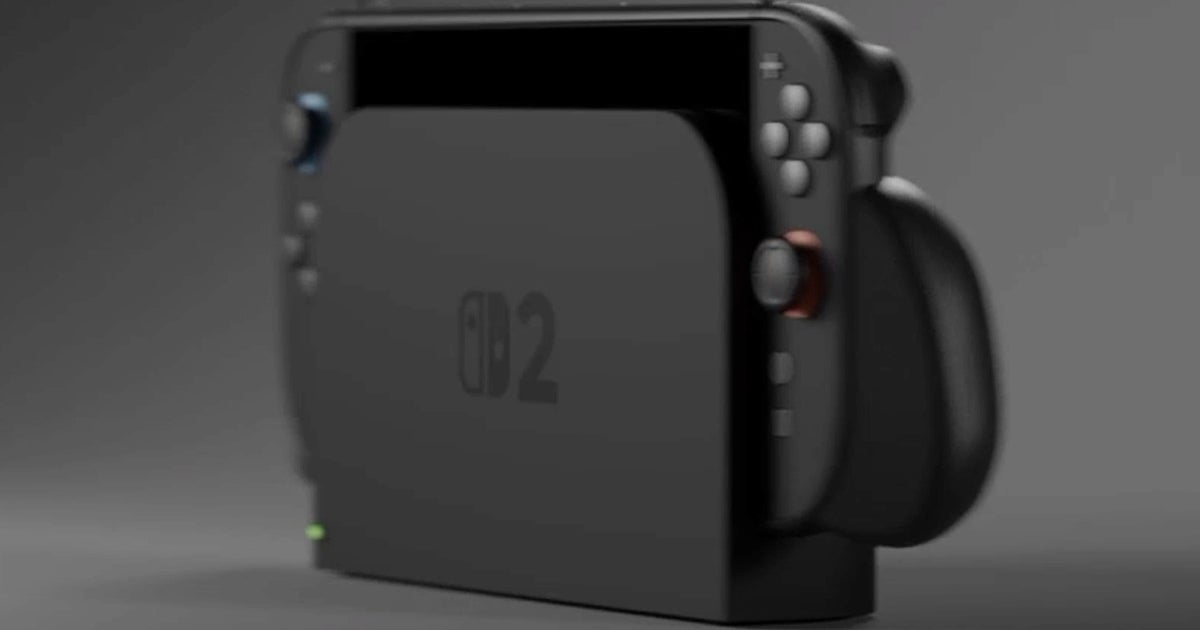The next game from Surgent Studio, following this year's Tales of Kenzera: Zau, is planned to be an Afrofuturist gothic-horror RPG, Eurogamer can reveal.
Currently known as Project Uso (the Swahili word for 'face'), it will be a continuation of the Tales of Kenzera world but will explore issues of identity following the birth of creator Abubakar Salim's daughter. Ahead of founding Surgent Studio, Salim was best known as a voice actor for his portrayal of Bayek in Assassin's Creed: Origins.
The announcement of Project Uso follows a difficult time for the studio, with staff facing both redundancy and racist abuse online.
"As soon as my daughter was born I knew what I wanted to cook," Salim tells Eurogamer of the new project. "This idea stems from this question of 'who am I?' Zau was a question of 'who am I without a parent?' This is essentially looking at 'who am I now as a parent?' I really wanted to make this very dark and visceral, a cross between an RPG and a beat 'em up power fantasy."
The result (so far it's just a prototype) is an isometric Afrofuturist gothic-horror action-RPG, with shades of Disco Elysium, the Batman Arkham games, and Resident Evil. Players will take the role of a vampiric android known as The Solost, fashioned to cradle the spirits of the deceased. However, the android also bears the soul of Eshu, the god of chaos, continuing the Bantu Tales influence from the previous game.
As such, players will have the powers of both an android and a god, but their views aren't always aligned. This split personality will play into the game's RPG Crucible system, where players will have to roll against themselves for control of body and mind. "I'm a massive Dungeons and Dragons player and love RPGs," says Salim. "I've always wanted to build an RPG."
.png?width=690&quality=75&format=jpg&auto=webp) Players will need to roll against themselves | Image credit: Surgent Studio
Players will need to roll against themselves | Image credit: Surgent Studio
The game is currently in the early stages of development as Surgent seeks funding. Last week, a statement from the studio explained its games division is now "on hiatus". "In the meantime, we've unfortunately had to put our team on notice for redundancy," it read. This affects the whole studio, Salim says, meaning these jobs are at risk until funding is found.
"The important bit here was to make sure that people were paid what they were owed, especially in today's time where there is so much going on and so many layoffs," says Salim. "It's so unpredictable, you want to make sure that people feel safe to a degree, but that's the situation in which we're in at the moment. It's only until we get funding where we can then keep the team and keep them going as a whole."
This news followed a round of layoffs at Surgent Studios in July, not long after the game's release. "This hurts deeply," Salim wrote at the time. "I am so proud of what the team have achieved over the course of these four years. When things got tough, every one of them stood so strong, it was inspiring. So to be delivering this news today really sucks. I know we're not alone here, but that doesn't make it easier."
As Eurogamer has reported, layoffs and studio closures have impacted all levels of the games industry. But indie developers are particularly reliant on funding and - as Salim can attest to - projects are put on hold entirely until the finances can be found. Funding, he explained, usually gets a studio to launch and just afterwards, but depending on the financial model it may not see profits straight away (along with other individual factors).
Yet where previously there may be overlap between games launching and new projects beginning, that's often no longer the case in the current climate. "We've entered into a time where I think the industry is having a weird check on itself," says Salim. "Money is tightening. There was too much spending and now there's a retraction of that." So while the studio has already begun work on its next prototype, it's now in a strange limbo between projects - and jobs are at stake.
.png?width=690&quality=75&format=jpg&auto=webp) Image credit: Surgent Studio
Image credit: Surgent Studio
.png?width=690&quality=75&format=jpg&auto=webp) Image credit: Surgent Studio
Image credit: Surgent Studio
Does this put pressure on developers to move to a new project quickly to ensure funding, potentially stifling creativity? Salim explains it's a matter of planning and depends on the creative. "You are trying to ship a game and trying to get that through, your mind is on just one game at a time," he says. "But there's also an element of that's just part of the business. The tricky bit you can't necessarily plan for is the cost of living crisis and the industry as a whole being in this shaky moment. You can't plan for that."
That's why Salim has created Tales of Kenzera as a universe with multiple stories, to ensure its longevity. "Where else can we pluck from and play that could be really exciting within this space?" he says. "I designed it that way as a whole."
These sorts of financial difficulties for indie studios, Salim believes, are a result of both the gradual boom of the games industry and the current climate, following the COVID-19 pandemic. "There is this idea of constantly being pushed to grow, to be bigger, to do more, to spend more," he says. "And within an industry that is, rightfully, so artistic in its nature, that isn't necessarily always the answer. Comparing it to the film space and looking at Marvel films or other big, huge films: the bigger the budget, the more [sales] they have to hit and the higher the benchmark is. We're in a time where that benchmark is high, you've got to really do something phenomenal or out there in order to really stand out."
"There is this idea of constantly being pushed to grow, to be bigger, to do more, to spend more. And within an industry that is, rightfully, so artistic in its nature, that isn't necessarily always the answer."For Salim, the industry needs to take more risks and trust creatives to express themselves. "I feel like that is really, truly where you can find creativity and really cool games, because there will always be an audience there for it," he says. "It's just about trusting that."
He continues: "On the developer side it's difficult because I think we are very much beholden to the publisher, or where the money comes from. Yes, you can plan to build smaller budget games or go in tighter. But it comes at a cost. I know developers who have three or four jobs, working on a game that they really wanted to do as a passion project but at the same time having to balance it out with another job.
"It's tricky and everyone's circumstances are different," he surmises. "But I would say, there really needs to be a feeling of these spaces being a lot more bold and daring and just trusting the voice of creatives more and not thinking so much on the idea of 'will this go gangbusters?'"
.png?width=690&quality=75&format=jpg&auto=webp) Image credit: Surgent Studio
Image credit: Surgent Studio
Tales of Kenzera: Zau was funded by EA's Originals programme, which Salim praises for giving creatives "a shot at creating something bold and out there and new and different, and you can feel that".
Salim has been particularly outspoken during the development of Surgent Studios' game, from appearing on-stage at The Game Awards to posting candidly online. That transparency, unfortunately, led to a torrent of racist abuse that reached a "fever pitch" of "constant targeted harassment" after the launch of the game.
Four months later, that racism has not let up. "I think people were struggling to separate constructive criticism of the game to just plain racism," says Salim. "Whenever it was called out, there would also be like 'because we don't like the game, or because we don't like what you're doing, you're calling us racists'. That was something I really wanted to clarify and clear out and point out the difference between someone being outwardly racist or making racist and derogatory terms, to someone saying they wanted to give criticism or give their point of view of the game."
 Abubakar Salim | Image credit: Surgent Studios
Abubakar Salim | Image credit: Surgent Studios
He continues: "Criticism or elements of wanting to improve on the game or improve on practices, being open on that front and taking it and learning from that - that's important. More people should do that. Whether I was open or whether I was closed off still shouldn't invite racism.
"We all enjoy games. There's a passion there for it. So what is it that you feel is irking you? What do I feel that's irking me? Let's have a conversation about it, because we might find maybe these issues aren't as bad as we think, or we can find a way around conquering these problems."
"Whether I was open or whether I was closed off still shouldn't invite racism."Knowledge is power, Salim believes, and receiving different points of view is important - as long as it's constructive. "I feel that's something I want to support and reinforce and stand behind, which is why the openness and the transparency has been a really important factor to the studio and how we run it," he says. "It's important that people know the details of an industry, because then it means when judgements or actions are taken or things are said, it's coming from a place of knowledge."
That transparency has allowed useful feedback from players, beyond simply 'the game's good' and moving on. "I'm happy that we've been really open with as much as we can," he says. "Whatever feedback you have, send it through. Racism isn't feedback."
Tales of Kenzera: Zau offered vital representation and an authentic African setting rarely seen in games. Hopefully that continues with Project Uso and its unique Afro-horror aesthetic, though the studio faces an uphill battle on multiple fronts.

 2 months ago
159
2 months ago
159







![Anime Reborn Units Tier List [RELEASE] (November 2024)](https://www.destructoid.com/wp-content/uploads/2024/11/anime-reborn-units-tier-list.jpg)
